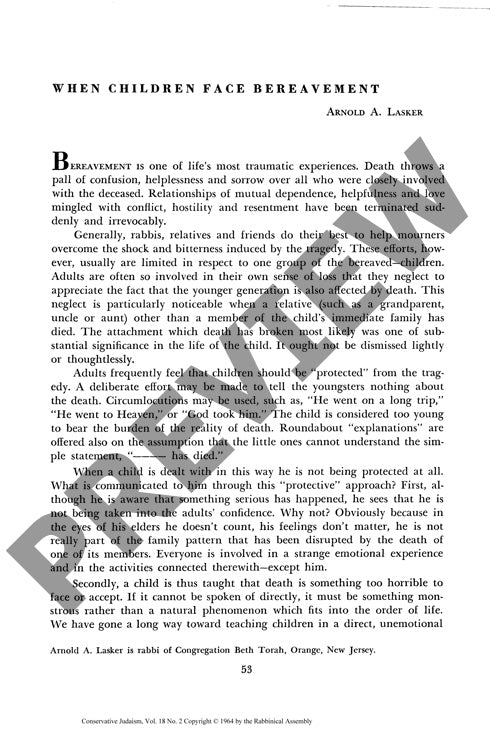When Children Face Bereavement
Couldn't load pickup availability
When adults try to shield children from death through euphemisms like "went to sleep" or "went away," they often create deeper anxiety and confusion rather than comfort. Through clinical observations and pastoral counseling experience, this research challenges conventional "protective" approaches to childhood bereavement by analyzing adult responses to children's grief and their unintended consequences. The methodology employs qualitative analysis of children's reactions to euphemistic death explanations, examination of guilt and anxiety patterns, and evaluation of inclusive versus exclusionary approaches to mourning rituals. Children frequently develop guilt complexes, believing their misbehavior caused the death, particularly when excluded from family grieving processes. The evidence reveals that children possess greater capacity for understanding death than adults typically assume, but require age-appropriate direct communication and inclusion in mourning rituals. The research concludes that honest, developmentally appropriate discussions about death, combined with emotional support and inclusion in funeral processes, better serve children's psychological needs than protective isolation. The findings suggest that rabbis and families should abandon euphemistic language, provide clear explanations of death as a natural phenomenon, and ensure children feel valued as legitimate participants in the family's grief experience.

More Information
-
Physical Description
-
Publication Information
Published 1964
ISBN
-
Publication Credits
Arnold Lasker

